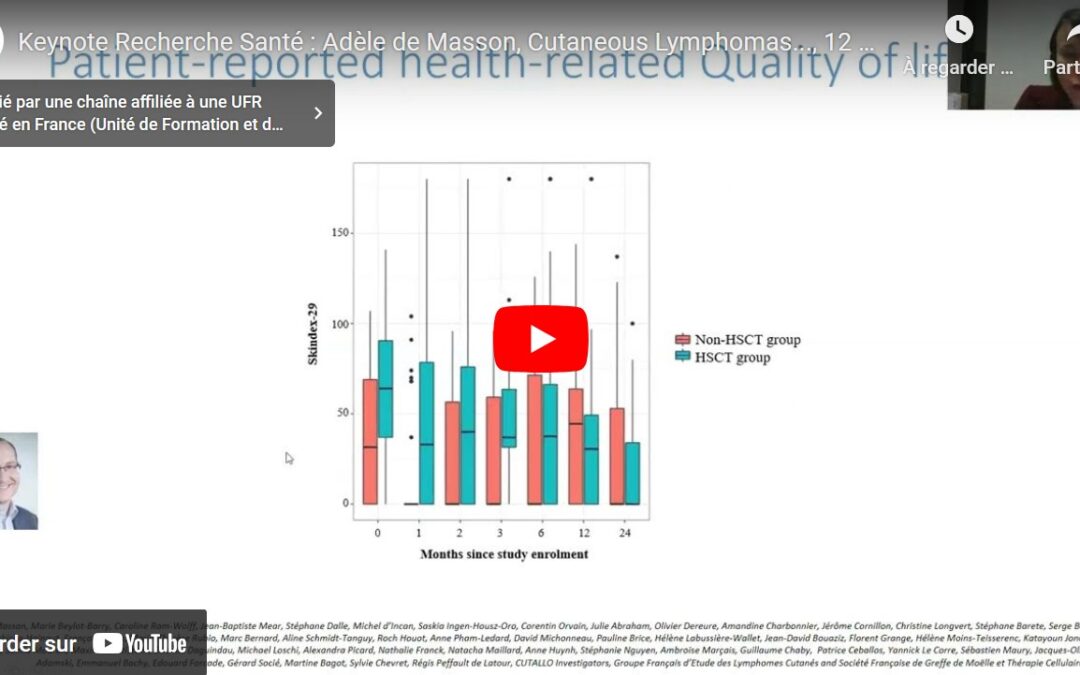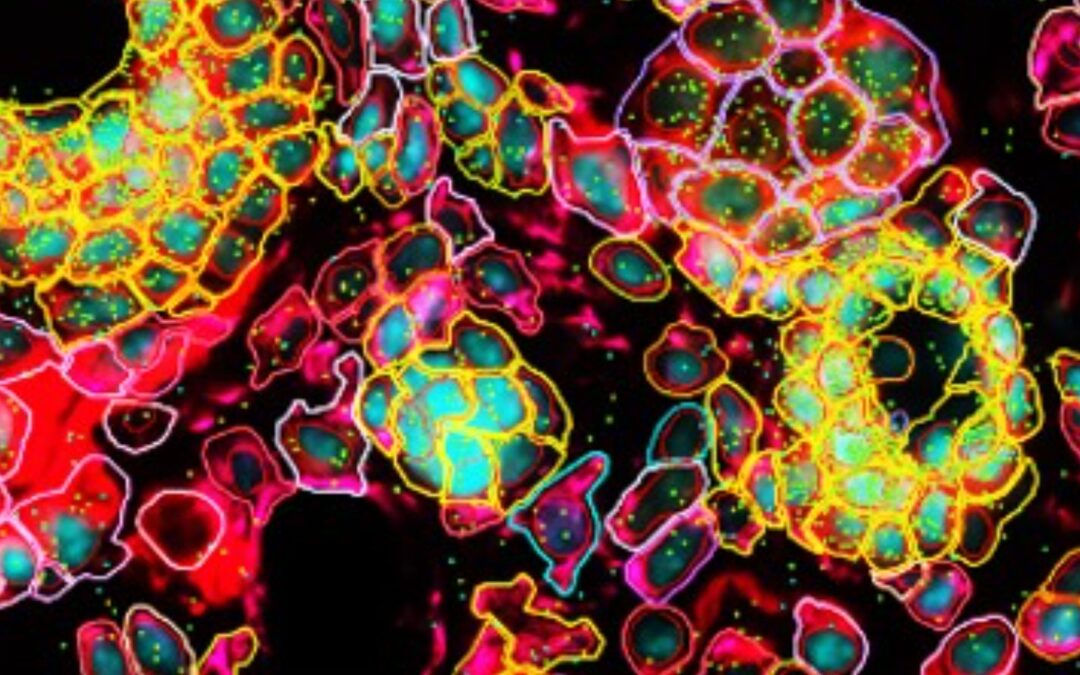Who we are
SPRINT aims to develop new diagnostic, prognostic and therapeutic tools for cutaneous T-cell lymphomas, in order to transform the outcome of patients suffering from these diseases.
RHU SPRINT objectives
The main objectives of the SPRINT program are to establish proof of concept of the efficacy and safety of a new drug for these diseases, and to discover biomarkers for predicting disease progression and response to different treatments.
To achieve this within 5 years, the SPRINT consortium has set itself the following objectives:
– create a national data portal for cases of this disease: digitized anatomopathological data (biopsy slides), clinical information, follow-up information, blood and skin samples and other relevant multi-omics data;
– use artificial intelligence to predict the individual course of disease in each patient, enabling effective personalized management of the disease before it reaches a treatment-refractory stage;
– stratify patients to predict their response to targeted monoclonal antibody therapies, and identify and overcome any mechanisms of resistance to these treatments;
– develop two new innovative drugs for the treatment of these diseases, and test one of them in a Phase I trial.
Expertise at RHU SPRINT
Academics have been working together for over 24 years within the GFELC Study Group of Cutaneous Lymphomas. They have conducted over 80 studies and collaborated on fundamental studies, including publications in Lancet, Lancet Oncology, JCO and Blood. Our academic centers are all SIRICs (“Sites de Recherche Intégrée sur le Cancer”), integrated cancer centers accredited by INCa: Paris InsiTu (Insights into cancer: from inflammation to Tumor, Prevent – Intercept – Cure), BRIO (Bordeaux Recherche Intégrée en Oncologie) and LYriCAN (Lyon Recherche Innovation contre le Cancer).
The project benefits from the CRB (Centres de Ressources Biologiques) in Paris Nord, Bordeaux and Lyon.
TheraPanacea is already collaborating with academics in the field of immuno-oncology to have a direct impact on patient care, including the RHU wave 5-funded LysAiri project.
Winner of two successive RHUs supported by the ANR as part of France 2030, Domain Therapeutics, a leader in the field of innovative anti-cancer immunotherapies targeting G protein-coupled receptors (GPCRs), aims to re-arm patients’ immune systems to fight tumours more effectively. The Domain teams are exploring the potential of anti-CCR8 monoclonal antibodies (mAbs), capable of depleting regulatory T cells (Tregs) to specifically target cutaneous T-cell lymphoma (CTCL) cells. This approach opens the way to promising new therapies, offering increased benefit for patients.
Read more

Pr Adele de MASSON on Cutaneous Lymphomas, November 12, 2024 Keynote
The Faculty of Health's Research and Innovation Unit organises monthly online Keynotes on cutting-edge research topics. Here is the video recording of the 12 November 2024 Keynote by Pr Adèle de Masson on the subject of Cutaneous Lymphomas: unraveling the mechanisms...

RHU SPRINT Newsletter N°1
Download RHU SPRINT Newsletter N°1 below (in French) : Newsletter-RHU-Sept2024

RHU SPRINT kick-off meeting
The kick-off meeting for the RHU SPRINT hospital-university research project, Synergy to accelerate therapeutic innovation in cutaneous T lymphoma, took place on Monday, May 27, 2024. RHU SPRINT Kick-Off The meeting was held at the Faculté de Villemin, in the presence...
